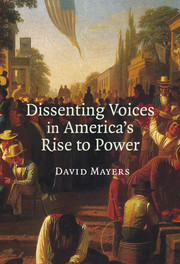7 - Reservations
from Part II - Conquests
Published online by Cambridge University Press: 05 June 2012
Summary
The Civil War delayed US consolidation of North American territory. This postponement constituted a reprieve for western Indians that lived free of Washington. Their independence became quickly circumscribed after 1865, however. It vanished in the culminating Sioux-army melee at Wounded Knee in 1890.
Superior military technology, embodied by Hotchkiss mountain howitzers, played a role against those tribes living between the Pacific and Mississippi: Apache, Arapaho, Blackfeet, Cheyenne, Comanche, Crow, Kiowa, Modoc, Navajo, Nez Perce, Paiute, Pawnee, Ponca, Shoshoni, Sioux, and Ute among others. Diseases afflicted these peoples with catastrophic rates of mortality. Changes to the environment disconcerted the tribes: installation of railroad and telegraph lines, liquidation of buffalo herds. The hammering of the golden spike in Promontory, Utah (May 10, 1869) symbolized a new order. It left scant space for customary Native American life. The tribes' inability to make common cause against the United States, logistical vulnerabilities, and casualness in planning longterm campaigns also reduced Indian chances.
The vise of white advance from the eastern edge of settlement, along the Mississippi, and the west coast crushed indigenous populations. Their dwindling numbers in the US hovered around 250,000 by 1890.
California highlighted the rapidity of native decline. The population stood at 150,000 before the forty-niners arrived. Indian count in the Golden State dipped below 30,000 by 1870. The California-born philosopher Josiah Royce recounted in his 1886 study of the state: “We reserved [abuse] for the defenseless Digger Indians whose villages certain among our miners used on occasion to regard as targets for rifle-practice, or to destroy wholesale with fire, outrage, and murder, as if … wasps' nests in our gardens at home.”
- Type
- Chapter
- Information
- Dissenting Voices in America's Rise to Power , pp. 159 - 189Publisher: Cambridge University PressPrint publication year: 2007



